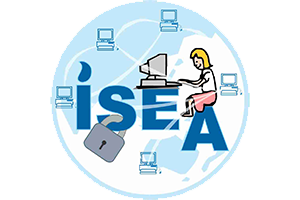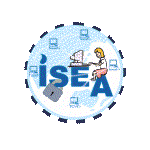- Ethics are a set of moral principles that govern an individual or a group on
what is acceptable behaviour while using a computer. Computer ethics is a set of moral principles that govern the usage of computers. One of the common issues of computer ethics is violation of copyright issues.
- Duplicating copyrighted content without the author’s approval, accessing personal information of others are some of the examples that violate ethical principles.
Internet Ethics for everyone
Internet ethics means acceptable behaviour for using Internet. We should be honest, respect the rights and property of others on the Internet.
Acceptance
Internet must be used for communication with family and friends. Avoid chatting with strangers and forwarding e-mails from unknown people /strangers.We must be aware of risks involved in chatting and forwarding e-mails to strangers.
Pretending to be someone else
We must not use Internet to fool others by pretending to be someone else. Hiding our own identity to fool others in the Internet world is a crime and may also be a risk to others.
Avoid Bad language
We must not use Internet to fool others by pretending to be someone else. Hiding our own identity to fool others in the Internet world is a crime and may also be a risk to others.
Hide personal information
We should not give personal details like home address, phone numbers, interests, passwords. No photographs should be sent to strangers because it might be misused and shared with others without their knowledge.
While Downloading
Internet is used to listen and learn about music,It is also used to watch videos and play games we must not use it to download them or share copyrighted material. We must be aware of the importance of copyrights and issues of copyright.
Access to Internet
The Internet is a time-efficient tool for everyone that enlarges the possibilities for curriculum growth. Learning depends on the ability to find relevant and reliable information quickly and easily, and to select, understand and assess that information. Searching for information on the Internet can help to develop these skills. Classroom exercises and take-home assessment tasks, where students are required to compare website content, are ideal for alerting students to the requirements of writing for different audiences, the purpose of particular content, identifying and judging accuracy and reliability. Since many sites adopt particular views about issues, the Internet is a useful tool for developing the skills of distinguishing fact from opinion and exploring subjectivity and objectivity.
Ethical rules for computer users
- Do not use computers to harm other users.
- Do not use computers to steal others information.
- Do not access files without the permission of the owner.
- Do not copy copyrighted software without the author’s permission.
- Always respect copyright laws and policies.
- Respect the privacy of others, just as you expect the same from others.
- Do not use other user's computer resources without their permission.
- Use Internet ethically.
- Complain about illegal communication and activities, if found, to Internet service Providers and local law enforcement authorities.
- Users are responsible for safeguarding their User Id and Passwords. They should not write them on paper or anywhere else for remembrance.
- Users should not intentionally use the computers to retrieve or modify the information of others, which may include password information, files, etc..

